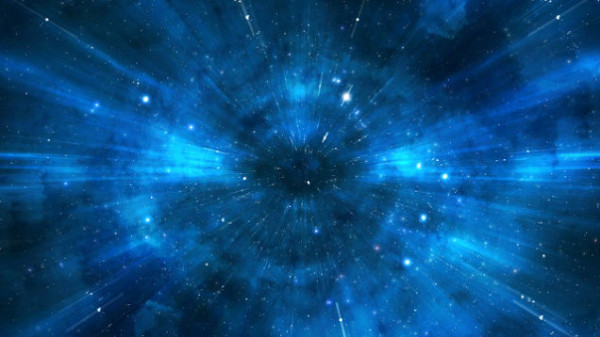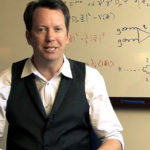It’s That Simple: The First Cause and Occam’s Razor
by Steven Dillon
Filed under The Existence of God
One objection to First Cause arguments is that they make superfluous attributions: surely in any steady hand Occam’s razor would deliver a much more modest looking First Cause than God. In my last post, I argued that this objection is fallacious in as much as it begs the question against Classical Theism, for which the First Cause and its attributions are indivisible (and thus hardly capable of being whittled by Occam).
But, this doesn’t show that there is a First Cause, or that Classical Theism is right about its simplicity. Still less does it show that its attributes include “intellect”, “will”, or “goodness”. I’m going to try and make up for much of this deficit in this post, hoping my point about the fallacious nature of these Occam-style objections has in some measure cleared the runway.
I believe it can be demonstrated that there is a First Cause and that Classical Theism is right about its simplicity in one fell swoop. While this argument will not in and of itself show that the First Cause’s attributes include “intellect”, “will”, or “goodness”, and thus that it is God, it will show that the First Cause is supernatural, or non-natural at least.
Allow me to begin by asking you to consider an average human being. I think we will all agree that it has body parts. But, this is just a realization of its potential to have body parts. If it did not have this potential, if it were literally incapable of having body parts, then it simply would not exist (lacking all the essential organs and such).
Let’s now abstract from this or that human being’s potential to have body parts, and consider the potential by itself. Obviously, the potential to have body parts is general enough that non-human animals have it as well.
This process of abstracting the particulars away could continue on until we arrive at the most general potential included in a human’s potential to have body parts. Thus, we might say the next particular to be abstracted is the having of any specific kinds of parts. In turn, the potential to have parts is just the potential to be composed, from which we may abstract the potential for there to be composition. What saves this from being an exercise in the mundane is that last item. What a peculiar thing, this potential for there to be composition.
Potentials don’t just float around: things have potentials. But, in what sense could something have the potential for there to be composition?
We can divide all potentials into two mutually exclusive categories: active and passive. Active potentials are powers to cause whereas passive potentials are just capacities to undergo change. Thus, my potential to eat lunch is active, while my potential to become older is passive.
If the potential for there to be composition were passive, there would need to be something that could undergo a change that would result in there being composition. But, if there were something capable of undergoing this change, something that genuinely had this potential, then there would already be composition! As such, the potential for there to be composition cannot be passive.
But, if it were active, then something would have the power to cause there to be composition. Since cause logically precedes effect and composition would be one of its effects, this cause could not be composed in anyway whatsoever. Given that this potential has to either be active or passive, and that it cannot be passive, we are forced to deduce that it is active, and therefore that there is a perfectly simple cause of composition.
We may formalize the foregoing reasoning as follows:
1. Every potential is either active or passive.
2. If the potential for there to be composition is active, then there is a perfectly simple cause of composition.
3. The potential for there to be composition is not passive.
4. Therefore, the potential for there to be composition is active. [(1), (3) Disj.]
5. Therefore, there is a perfectly simple cause of composition. [(2), (4) M.P.]
This is a pretty straightforward argument for a First Cause. There could not be more than one perfectly simple being since they would lack any distinguishing features by which to be differentiated.1 And since everything other than this perfectly simple cause is composed of parts, and it causes there to be composition, it sustains all things in existence by holding them together. It doesn’t matter whether the chain of composed beings regresses infinitely into the past, or loops back in on itself: the causation of this perfectly simple being is not ‘first’ in a temporal sense. Rather, its primacy lies within its fundamentality, its causation serving as the pulse of life underlying the existence of everything.
Still, why think it’s super or non-natural? The answer to this lies in the apophatic method: considering what forms of composition there are so as to deny them of the First Cause.
Fortunately, one sort of composition will suffice: that of matter and form. In every change something becomes otherwise than it was before. That is, something persists through the loss and gain of characteristics. Call these characteristics (such as redness, squareness, hunger, or location, etc. etc.) 'forms'. If forms are what are gained and lost through change, what is it that gains or loses them? Call the substratum in which forms are gained or lost ‘matter’. We can distinguish between different kinds of matter based on the forms that it 'substrates'. For example, we might designate the substratum of sensible form as 'physical' matter.
By virtue of its simplicity, the First Cause could not have matter, physical, quantum or any other partition thereof. It occupies no space, persists through no time, and lacks any and all pictorially identifiable features. No laws of nature govern its behavior; it is quite literally unlike anything in nature.
Granted, this does not spell ‘theism’. But, it’s eerily close and at complete odds with Naturalism in any case. The missing ingredients here have in no short supply been given elsewhere; however, perhaps that is a matter best left for another time.
Related Posts
Notes:
- We could hardly say one has these features or this essence, and the other has those features or that essence. And if their essences just were their existences, they’d be the same thing. ↩
Note: Our goal is to cultivate serious and respectful dialogue. While it's OK to disagree—even encouraged!—any snarky, offensive, or off-topic comments will be deleted. Before commenting please read the Commenting Rules and Tips. If you're having trouble commenting, read the Commenting Instructions.













